Artificial Intelligence (AI) has become a hot topic of conversation, with new discussions and breakthroughs emerging almost daily. This broad field encompasses a wide range of technologies, including Large Language Models (LLM), Statistical Inference, and Random Forest Models, all of which are designed to enhance and optimize business operations. However, each of these technologies can be complicated and difficult to implement.
Fortunately for Salesforce customers, Einstein and Agentforce are making utilizing these tools easy and offer a great user experience for Admins and end users alike. With these tools, you don’t need copious experience in data science or coding to score your Leads and Opportunities and you don’t need to manually review sales team’s calls and emails to find which customer segment tends to have more objections related to competitors.
Sounds too good to be true, right? Well, it’s not. Salesforce has invested quite a bit of effort into transforming their CRM into the AI CRM tool, leveraging Artificial Intelligence to help them stand out from competitors. The one caveat? It’s still your data. While Salesforce can leverage data available from other sources to train models, if your Org does not have enough, this does not stop these features from utilizing any bad data that could be stored in your org. An unfortunate reality is that any org that’s been around for more than a couple years likely has some data clean-up to do before utilizing these tools. This is because the integrity of your data directly impacts the accuracy and reliability of AI’s ability to make accurate predictions, insights, and recommendations.
Tools offered by Salesforce Einstein AI and Agentforce
In case you haven’t been following Salesforce’s significant investments into the world of AI, we’ll cover just a few of the tools they have implemented for their large customer base. Many of which may already be included in your license.
- Prompt Builder: This tool can be used to summarize and generate content. Prompts can be reused throughout your CRM and can reference data from several data sources.
- Model Builder: With Model Builder, you can bring your own AI/LLM models to your Salesforce instance and manage them in one easy to use interface.
- Agent Builder: Agent Builder allows you to create virtual agents to enhance your workforce. Whether it be Sales or Customer Service, Agentforce is powerful tool that can be leveraged at any size organization.
- Sales AI: This encompasses several solutions that include generating emails for customers, summarizing sales calls, real time predictions on closed deals, and automating sales processes. This also includes Einstein Insights. These can be gleamed from calls and emails and used to analyze sales reps’ effectiveness and influence next steps. This also includes Einstein Insights, which can be gleamed from calls and emails and used to analyze sales reps’ effectiveness and influence next steps. This category also includes:
- Agentforce SDR
- Agentforce Sales Coach
- Autogenerate Sales Emails
- Call Summaries
- Activity Capture
- Predictive Forecasting
- Call Insights
- Einstein Next Best Action
- Lead and Opportunity Scoring
- Customer Service AI: This portion encompasses chatbots, virtual agents, case summarization, and creating knowledge articles to be referenced for later solutions. This category includes:
- Case summarization
- Autogenerated Knowledge Articles
- AI Agents
- Marketing AI: This section of Salesforce’s AI solutions can be used to customize customer interactions at a higher scale and personalize journeys. This category is composed of the following tools:
- Segment creation
- Lookalike Modeling
- Journey Optimization
- Content Creation
- Messaging Insights
- AI Scoring
- Key Account Identification
- Full Funnel Multi-Touch Attribution
- AI Driven Even Triggers
- Real-Time Affinity Profiling
- AI-Automated Offers
- AI Powered Data Integration
- Marketing Performance Insights
- Automated Planning and Pacing
- Commerce AI: A category that encompasses the must-have features related to commerce instances that include recommending relevant products and automatically generating product descriptions. Included in this package:
- Agentforce Personal Shopper
- Smart Promotions
- Product Descriptions
How do you measure Data Quality?
When you’re beginning the journey of cleaning up data, it’s useful to know what metrics you should use. Below are some suggested categories that everyone should take into consideration when embarking on this process.
- Completeness: Is your full customer base represented in your database with all necessary data points?
- Uniqueness: Do you have duplicate records?
- Timeliness: Is your data current and up to date?
- Validity: Is your data formatted correctly?
- Accuracy: Does your data represent the current state of the real world?
- Consistency: Is the data in your CRM consistent with other systems or other available data?
How to protect data integrity in Salesforce
A great first step on this journey is to implement processes and procedures to stop “dirty data” from getting into your CRM. Below are a few of the methods you can use to accomplish this.
- Data Validation: User input is the primary reason that businesses experience poor data in their data repositories. Stop the bad data before it ever gets to your Salesforce Org by using native Salesforce solutions like restricted picklists, validation rules, and consistent training. Creating rules that restrict email addresses to valid domains and require addresses be formatted correctly are integral to the integrity of your data.
- Duplicate and Matching Rules: Duplicate records in a CRM can become a hinderance to everyday activity, especially when attempting to utilize some of the newest features offered by Salesforce. Various matching and duplicate rules can be set up to handle separate scenarios and cross object deduplication. These rules can later be leveraged to dedupe your existing data during your regular data reviews.
- Automation: Another way to prevent bad data from entering your CRM is to automate the capture of that data. This can be done using a variety of tools. Activity Capture, Screen Flows and Data Integrations are just a few examples. Automating this data capture and integration lowers the chance of users inputting incorrect or poorly formatted data.
- Clean your existing data: Now that you’ve stopped data of a lesser quality from making its way into your CRM, it’s time to clean up the data you already have and set up processes to ensure it stays that way.
- Regular Data Reviews: Depending on how long your org has been around and the size of your data, regular data reviews are essential. While there are many things you can do to avoid poor data, not all scenarios can be accounted for and avoided. Monthly or quarterly reviews can help reveal potential gaps in your current strategy and show a need for new solutions.
- Deduplication: While there may be some use cases for potentially having duplicate records, removing duplicate records can both greatly increase the accuracy of your data and decrease the amount of time it takes for your users to find the record they’re looking for.
- Data Enrichment: There are many companies that offer data enrichment services providing you data points for your records that you may not have access to otherwise. This enrichment can provide more data points that can be used to drive some of the Salesforce Einstein features, such as Lead and Opportunity Scoring.
Conclusion
Things are moving quickly on the AI front. If you’re uncomfortable with the pace of change in the CRM world, it is likely that this will be the slowest rate of change you will experience for the rest of your career, so there is no better time than the present to learn.
With Salesforce and other firm’s continued investments in these tools, there will only be more of them to use and more pressure to utilize them to create a comparative advantage. Have questions? Get in touch with an expert today.
Tips you should know
- Whether or not you intend to use Salesforce’s new AI tools, data Integrity should be at the forefront of any optimization or restructuring project.
- While Salesforce does offer native solutions to these problems such as Validation Rules and Duplicate Rules, there are many solutions available on the app exchange that offer more granular functions.
- When utilizing certain tools such as Lead scoring, Salesforce does assess your data for its readiness to use these tools.
- Make sure end users understand the importance of clean data and how it can affect their experience. Having buy end from users helps keep dirty data out of your CRM.
- Data Integrations are great way to enhance your existing data, but best practices should be followed to avoid convoluting existing data.
About HomeTree Digital
HomeTree Digital is a full-service digital marketing agency for financial services. We incorporate design & creative elements to our work and specialize in email marketing, social media marketing, paid advertising, videography, web development, custom integrations, and automations. As a Salesforce Certified Partner, we can assist with the architecture, administration, or development of your CRM. If you are facing challenges in any of these areas, please reach out to us for assistance. Personalize your subscription to receive regular updates.
HomeTree is defined as a wise resourceful home that provides knowledge, instills inspiration, encourages creativity, and protects. While harmoniously connecting its residents through its branches and roots to the outer world. This accurately describes the approach we take when it comes to our clients. We believe in excellent customer service and prioritizing you. Our mission is to provide you with the know-how to succeed in a rapidly evolving digital world.






